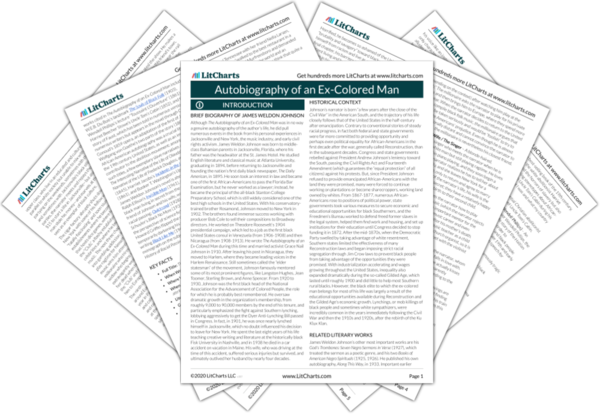This is the sense of regret that, at the beginning of the book, the narrator said he was trying to address; by re-encountering the power of black music and political leadership through his character foils, who are given perhaps the world’s most prominent stage, he sees what he could have become. The last sentence of the novel is an explicit reference to the biblical story of Esau, who sold his birthright (his right to authority as his family’s elder brother) for a bowl of lentil stew (the “mess of pottage”). This story, like
Faust, represents trading one’s identity for immediate comforts; the narrator realizes that his slightly greater comfort as a Northern white man does not resolve his shame at being black, or at seeing the way the United States treats its black population, but it does prevent him from openly fighting for civil rights. That leaves this book, an anonymous tale ending in regret, as the narrator’s only way to make amends and insist on the imperative of fighting for justice.
